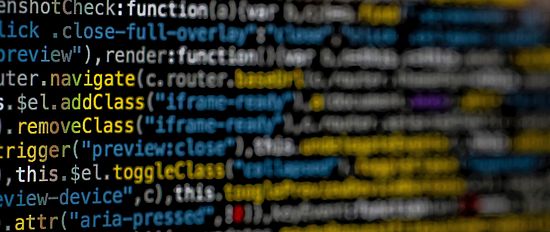
Source Code Criticism
Algorithms determine our situation. From bubble sort to Google’s Page Rank, credit scores, and predictive policing, the logic of algorithms intervenes at every step in our lives. Some operate opaquely, shielding their inner workings from curious eyes. Others strive to be transparent, are shared on repositories like GitHub, and follow an ethics of open-source accountability. In both cases, however, a more than trivial effort is required to understand the source codes in which algorithms are usually written. And with machine learning in the form of artificial neural networks, these efforts may well be in vain, as there is no code to inspect any longer.
Workshop: Source Code Criticism: Hermeneutics, Philology, and Didactics of Algorithms
The online workshop “Source Code Criticism: Hermeneutics, Philology, and Didactics of Algorithms” examined the various ways in which code – both sequential and connectionist – can be read, interpreted, and made accessible to current and future readers, and investigated its role both as often impenetrable societal force as well as a very particular type of text. It took place March 25/26, 2022. The sessions have been recorded and can be accessed and watched via the following links.
March 25
Markus Krajewski / Hannes Bajohr (Basel): Introduction
Dan Verständig (Magdeburg): Coding and Uncertain Certainty [KEIN VIDEO UND KEINE DISKUSSION]
Sarah Lang / Sebastian Stoff (Graz): Expectation Management: Testability and Replicability in the context of research software development
Christoph Engemann (Berlin): Sources of Centrality: The Social Genealogy of Modern Graph Algorithms
Mark Marino (Los Angeles): First Findings: 15 Years of Critical Code Studies
March 26
Anne Kaun (Stockholm): On Robot Colleagues and Software stories: Cultural Techniques of Knowing and Unknowing the Algorithm
Leah Henrickson (Leeds): Grieving via GPT: Circling Around Cadaverous Chatbots
Tyler Shoemaker (Davis, CA): Preprocessing the Word
Matthew Kirschenbaum (College Park, MD): Reading Recurrent Neural Networks
Quick Links
Social Media
